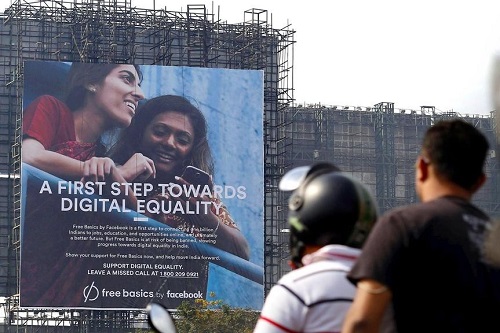Reuters photo
By
Irfan Rashid and Barjish Bhat
The world’s richest person Bill Gates once said: “The Internet is becoming the town square for the global village of tomorrow.” Thankfully, this period has already appeared on our calendar, in our age only.
The power of the web is immense—although some portion of it has been tapped the major part has yet to be. It is only the interconnection of the global information systems that has been the primary factor in creating a model called the global village.
But in this ocean of information where does the youth of our country fare? On 27th April 2018, the results of the Union Public Service Commission UPSC civil services – India’s highest recruiting body – were declared and Anudeep Durishetty bagged the Air India Rank 1 and Anu Kumari got rank 2. Both officers have now become symbols of qualifying through the tough Indian Administrative Services IAS with the help of the internet.
When Anudeep, who was working in a company at that time, was asked about preparing for his exam, he credited his success to the internet and said that: “instead of spending my time at any coaching centre, I relied extensively on the internet, and used Google and Youtube to get most of the information.” The second topper, Anu Kumari, who was a mother of a baby while preparing for the examination, had no luxury to attend a coaching centre but to use the online resources and prepare from home.
These are just two prime examples of our youth who took full advantage of the internet, but there are millions of other youth who also used the online resources extensively to transform their lives as well as society.
The area of technology in today’s society that is expanding leaps and bounds is the internet. If a person needs information or directions the fastest and most successful place to turn is online. “You can get anything you want with a click of a mouse,” has become the motto for the modern world. Inside the virtual world are millions of groups and organizations built to interest people who share common ideas, values, and goals—and thus gave rise to social media. These social media groups, commonly referred to as communities, appeal to a certain aspect of everyone’s lives.
We have seen how youth from the Middle East transformed the democracy of Egypt with the Arab Spring using social media to voice against the dictator and assemble people to get rid of a cruel government. Similarly, we are witnessing the change in governance of our own country when we observe how youth are making the government, its bureaucrats, senior officials, police and other wings of the state accountable to the people through online media. Every now and then, we read how some person using secret a camera trapped corrupt officials, then uploaded that onto social media and instantly lakhs of people watched that action. This leads to better governance in our country.
The memories of the Kashmir floods can never fade away but recently we saw an even more disastrous flood in Kerala; and here we got to see another side of the online world. The hashtags like #KeralaFloods #HelpKerala, etc. went viral throughout the world, succeeding in getting help from millions of people from every corner of the globe. The pictures uploaded on social media aroused the emotions of the people from Kashmir to Kanyakumari, resulting in unification of different sections of society with a single mission of helping God’s own land Kerala.
Gone are the days when there was a huge difference in knowledge between a student of a remote area and a student of Oxford University. The student from the remote area had to reach some library and hope that this particular book was there. But, now both students have every kind of knowledge and research available at the click of mouse or even smartphone.
The power of the internet is also helping in reporting sexual violence—which has been the most underreported crime to date in our country. Online media has been a tool of women’s empowerment. When the Nirbaya gang rape case took place in Delhi, we saw how youth formed associations through Twitter and Facebook and succeed in pressurizing the government to amend rape laws of the country.
Similarly, the internet has bridged the gap between the ruling class and the citizens. When the external affairs minister Sushma Swaraj was tagged on Twitter by aggrieved citizens who were not able to get their passport, she reacted quickly and within a day, their problem was solved. It was not possible in yoke days.
Technology is changing our lives and that of future generations; reshaping the economic, social, ecological, religious and cultural contexts in which we live. Without doubt, today, in one day, more information is going through the Internet than all the information collected in over a hundred years of printed books. Stephen Hawking’s quote: “We are all now connected by the Internet like neurons in a giant brain” has already set the pace of the modern day connectivity in the ever increasing cross connections of this information world.
Irfan Rashid
Irfan Rashid is a Journalist from Indian administered Kashmir. He has specialization in “Narrative Journalism” from Central University of Kashmir. He can be followed on twitter @IrfaaanRashid and on facebook.



very useful article